Md Asaduzzaman
Associate Professor, Ph.D. in Bioproduction and Bioenvironmental Sciences
- md.asaduzzaman

- Areas of Research
- Greenhouse Horticulture, Hydroponics and Soilless Culture, Controlled Environment Agriculture (CEA), Specialty Crop Production, Autotoxicity in Recyled Hydroponics
- Profile
- Research
-
Dr. Md Asaduzzaman earned his Ph.D. in Bioproduction and Bioenvironmental Sciences from Tottori University, Japan, in 2013. He completed a JSPS Postdoctoral Research Fellowship at Shimane University, Japan, in 2016. During his postdoctoral research, he collaborated with the Bangladesh Agricultural Research Institute (BARI) on hydroponics and soilless cultures for tomato varieties. He coordinated the JST-funded Sakura Science Program for 25 young agricultural researchers from BARI to train at Shimane University on Simplified Hydroponics in 2018, 2019, 2022 and 2023.
With 17 years of experience at BARI’s Horticulture Research Centre, Dr. Asaduzzaman research focuses on improving horticultural crop quality through hydroponics and soilless culture in greenhouses, as well as production of specialty crops under a controlled environment agriculture and plant factory in Japan. He has published extensively in national and international journals, with approximately 1000 citations (h-index 18), and is active in editorial and reviewing roles for prestigious journals and publishers.
Dr. Asaduzzaman is a member of several professional organizations, including: the International Society for Horticultural Science (ISHS), the Japanese Society for Horticultural Science (JSHS), the American Society for Horticultural Science (ASHS), the Bangladesh Society for Horticultural Science (BSHS), the Bangladesh Association of Advancement of Science (BAAS), and the Japan Plant Factory Association (JPFA). He has received awards such as the BAS-TWAS Young Scientists Prize in 2016 and a gold medal from Bangladesh Agricultural University in 2011.
Dr. Asaduzzaman organizes training sessions and delivers lectures to disseminate his research findings and technologies to various stakeholders including farmers, extension workers, students, and industry partners. In his free time, he enjoys nature walks with his family, watching soccer and cricket, and reading science literature.
-
Quality Improvement of Horticultural Crops through Hydroponics and Soilless Culture Under Greenhouse and Controlled Environment Agriculture
Hydroponics is a method of growing plants without soil through water or with medium to support the roots (perlite, rockwool, coco coir etc.), using complete nutrient solution (water + mineral nutrients), controlling the root zone condition (water, nutrients, oxygen, temperature). This is an alternative and managed culture technique that enables a more precise control of the growth conditions, which make it easier to study the variables, factors and parameters. The research uses this modern cultivation technique for improvement of growing conditions and quality of horticultural crops through following research themes.
Development of eco-friendly soilless substrate alternative to synthetic substrate
The availability of environmentally sound soilless substrate is scarce globally, including countries such as Bangladesh and Japan. While coconut substrate presents a promising alternative, its rising demand has driven up costs. To address this challenge, Dr. Asaduzzaman’s team is exploring various alternatives, such as balance of coconut substrate with perlite, as well as utilizing rice husk, river gravel, coarse sand and other locally available natural materials (Fig. 1).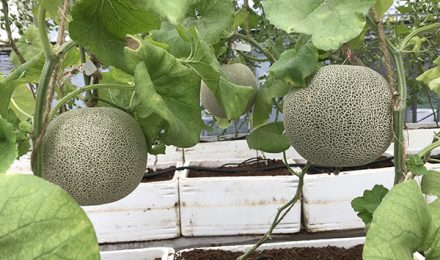
Fig. 1 Production of netted melon in coconut substrate based soilless culture
Improvement of growing condition and use of plant growth stimulants
Plant growth and quality in horticultural crops can be enhanced through application of nanoparticles and bio-stimulants. This research focuses on investigating the efficacy of Fe-nanoparticles and various bio-stimulants in augmenting the growth and quality of tomato and sweet pepper cultivated in coco-nut substrate-based soilless systems (Fig. 2 – 3). Additionally, Dr. Asaduzzaman’s team is exploring the benefits of supplemental light emitting diodes (LED) lighting to boost growth and yield in sweet pepper, particularly during the winter season when photosynthetically active radiation (PAR) is low (Fig. 4).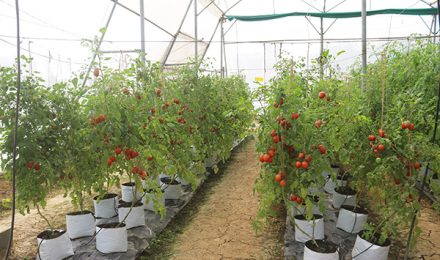
Fig. 2 Foliar application of Fe-nanoparticles for the improvement of yield and quality of tomato in the naturally ventilated polyhouse (NVPH)
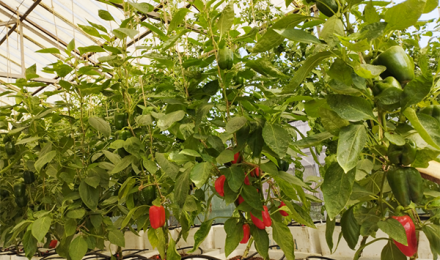
Fig. 3 Application of bio-stimulants on yield and quality of sweet pepper grown soilless culture
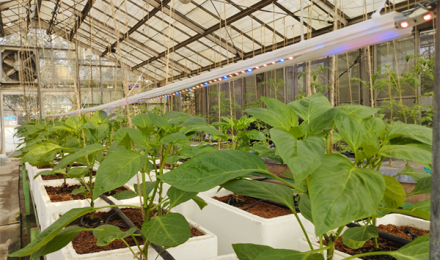
Fig. 4 Supplemental LED for the improvement of photosynthesis leading to increased yield of sweet pepper in the greenhouse
Specialty crop production through modification of environmental controls and hydroponic nutrients composition
Specialty crops offer potential dietary supplementation, intake of bioactive compounds and antioxidants improves human health. For instance, Non-Communicable Diseases (NCDs) due to dietary habits and the consumption of unsafe produce contaminated with pesticide residues and fertilizers are becoming a common problem in the world, including Bangladesh. Our research endeavors involve developing technologies for producing micronutrient-fortified leafy vegetables through hydroponic cultivation, as well as the production of low-potassium content fruits and vegetables through precise hydroponic nutrient management.Investigation of autotoxicity in recycled hydroponics
Recycled hydroponics, increasingly popular for commercial produce, face autotoxicity, an intra-specific allelopathy caused by allelochemical accumulation (Fig. 5). Dr. Asaduzzaman’s team investigated this phenomenon in various crops and proposed measures such as activated charcoal adsorption, microbial degradation, auxin supplementation and electro-degradation of phenolic compounds. They have also studied optimal conditions for electro-degradation and tested methods such as amino acid supplementation and LED light variations to improve growth and yield in strawberries and lettuce. The team’s work continues to find effective solutions for challenges in recycled hydroponics for greenhouse and controlled environment agriculture.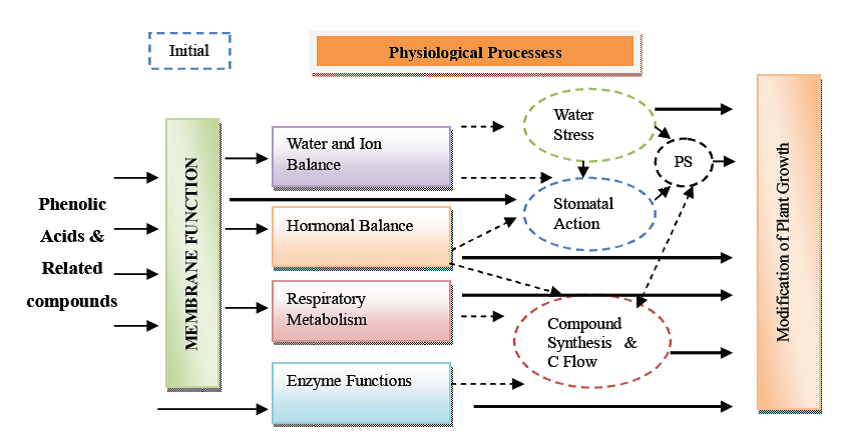
Fig. 5 A schematic diagram showing the mode of action of phenolic acid and related compounds that affects plant growth and development during allelochemical stress/ autotoxicity under recycled hydroponics.